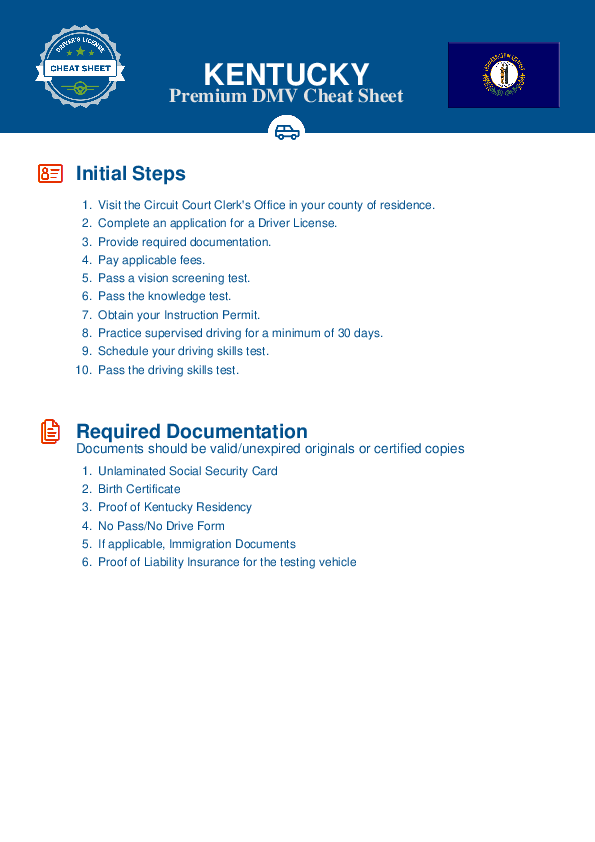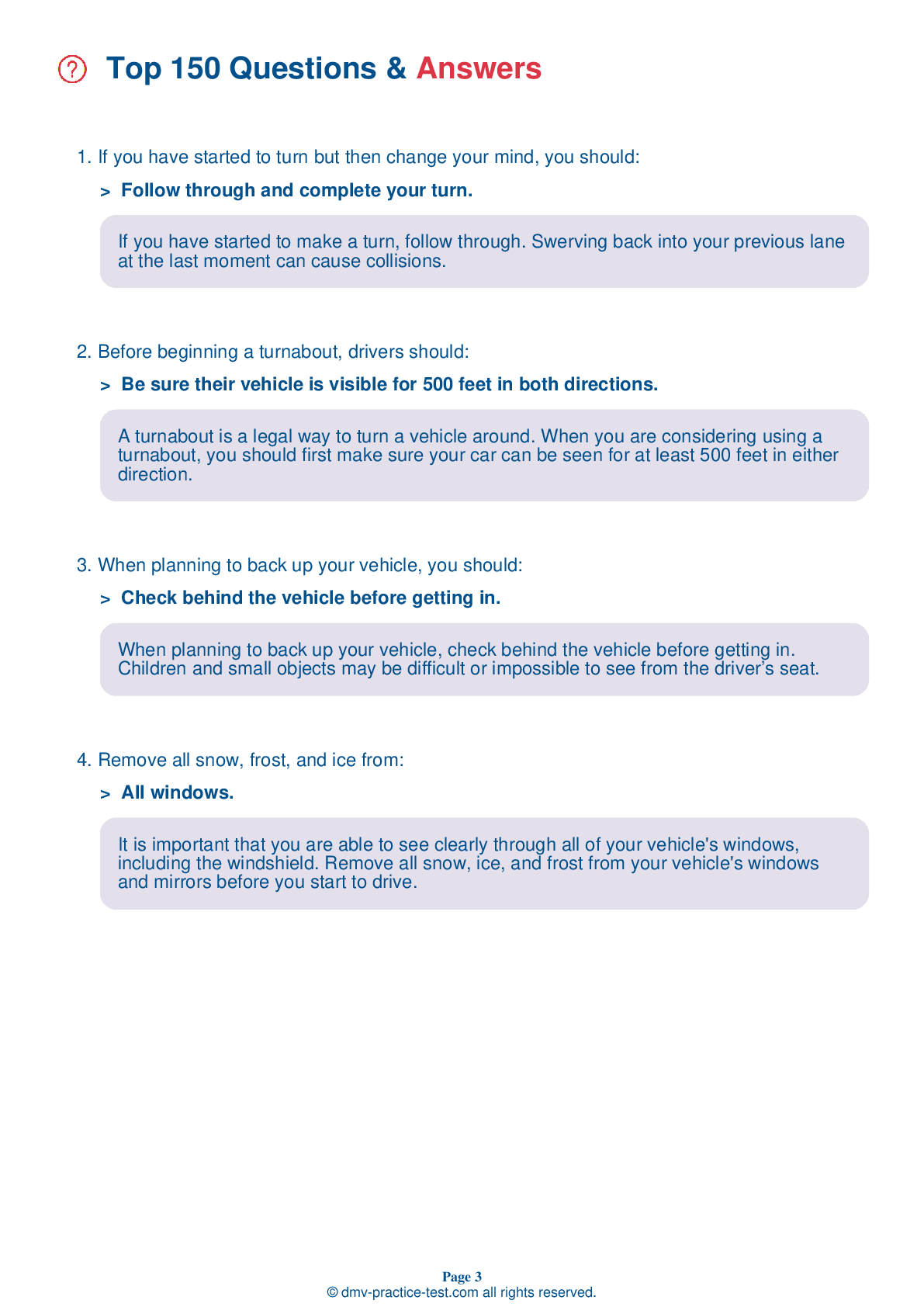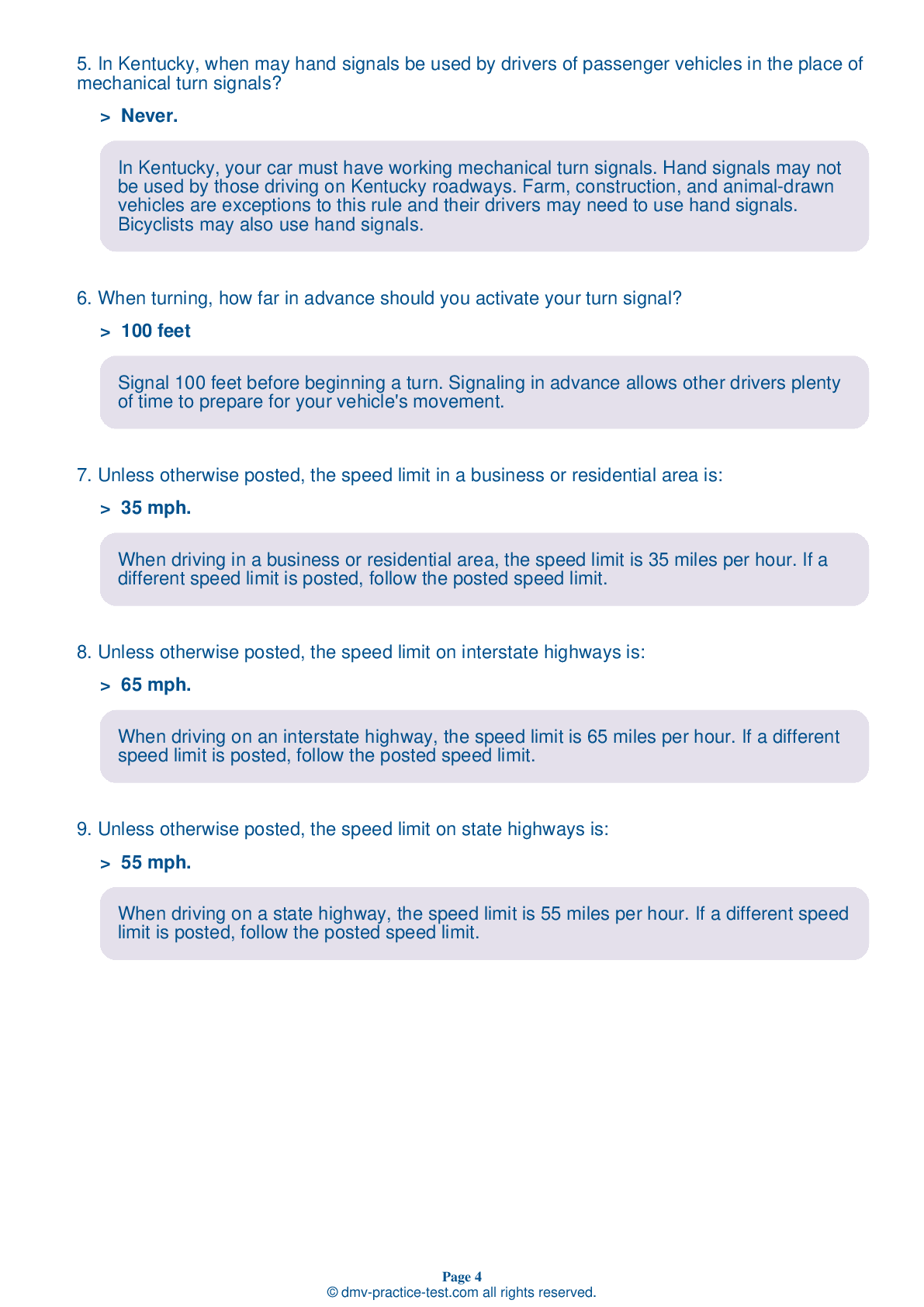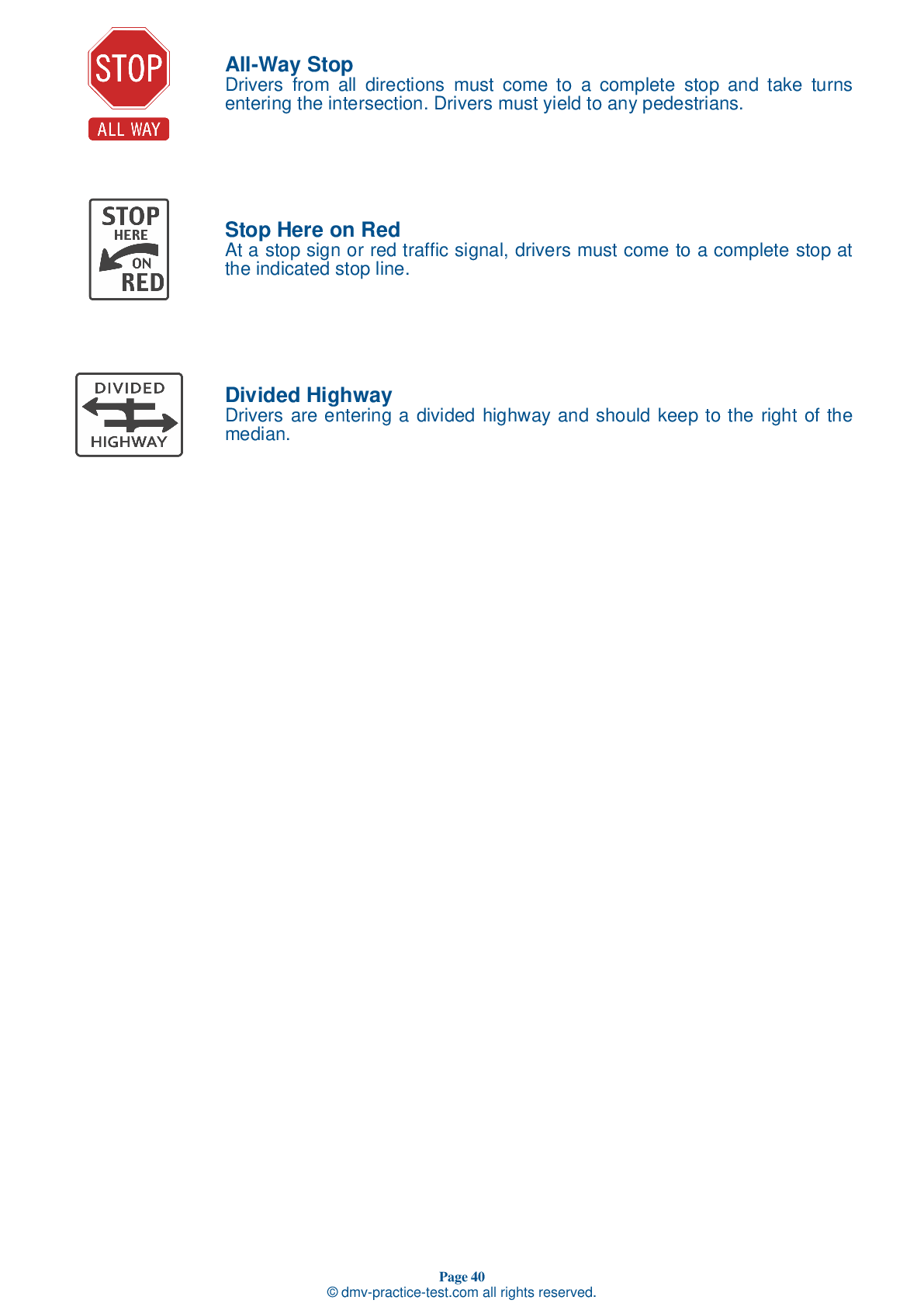FREE Kentucky DMV Practice Test #24 Page 3 of 5
The DMV practise tests in Kentucky have been updated for January 2026. It comprises questions based on the most important traffic signals and laws for 2026 from the KentuckyDriver Handbook. To study for the DMV driving permit test and driver's licence exam, use actual questions that are very similar (often identical!) to the DMV driving permit test and driver's licence exam.
Each question on the practise exam has a tip and explanation to help you recall the ideas. Questions about traffic rules, traffic signs, and driving statutes, as well as knowledge from the Driver Handbook, will be included in the written portion of the official Kentucky DMV test.
You must properly answer 32 of the 40 questions to receive a passing mark. To help you prepare for your Kentucky instruction permit or driver's licence, take our DMV practise test.
The DMV exam is offered in a variety of languages.
Using any form of testing help will result in an automatic fail, and the DMV may take further action against your driver's licence, so avoid it.
17 . Your license can be suspended if you are under 21 and drive with a blood alcohol level of:
There is zero tolerance for alcohol use by drivers under age 21. If you are under 21, the detection of any trace of alcohol in your system will result in stiff penalties, including the suspension of your license for two years.
18 . Trucks' blind spots are:
A truck's blind spots are much larger than a smaller car’s blind spots. The driver cannot see your car behind their vehicle and you can't see what’s happening in traffic ahead if you're driving too closely behind the truck. Whether you are driving behind or to the side of the truck, if you can’t see the driver’s face in their side view mirror, then they can’t see you.
19 . As you approach the top of a hill, you should:
You may not know what is on the other side of a hill or just around a curve, even if you have driven the road many times. If a vehicle is stalled just out of sight on the roadway, you must be able to stop. Whenever you come to a hill or curve, adjust your speed so you can stop if necessary.
20 . This sign tells you that:
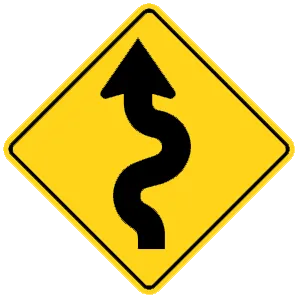
Warning signs are usually yellow with black markings. They alert you to conditions that are immediately ahead. This sign warns drivers about an upcoming winding road.
21 . Alcohol is:
Alcohol is a depressant that dulls your judgment and makes your reflexes unreliable.
22 . If you are driving on a highway next to a single broken white line marking:
White lines separate lanes of traffic moving in the same direction. You may cross a dashed white line to pass or change lanes if it is safe to do so.
23 . You are involved in a minor collision at an intersection. There are no injuries and there is very little vehicle damage. You should:
After a collision, if no one has been injured or killed and you can safely do so, you should move your vehicle out of the traffic lane.
24 . A sign with this shape means:

